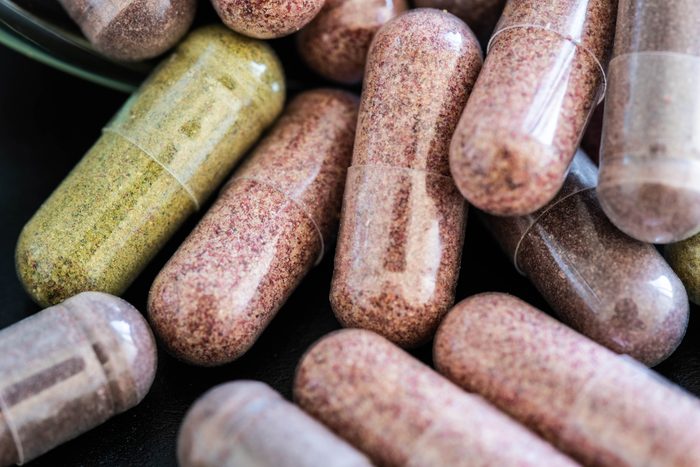
Heart doctors take these supplements
You’re on the right track if you’re already following the best diets for heart health, and you know about the secrets cardiologists want you to know. While supplements aren’t usually necessary for people who eat a well-rounded, healthy diet, we asked heart doctors if there were some supplements that they take. Here’s what they had to say.
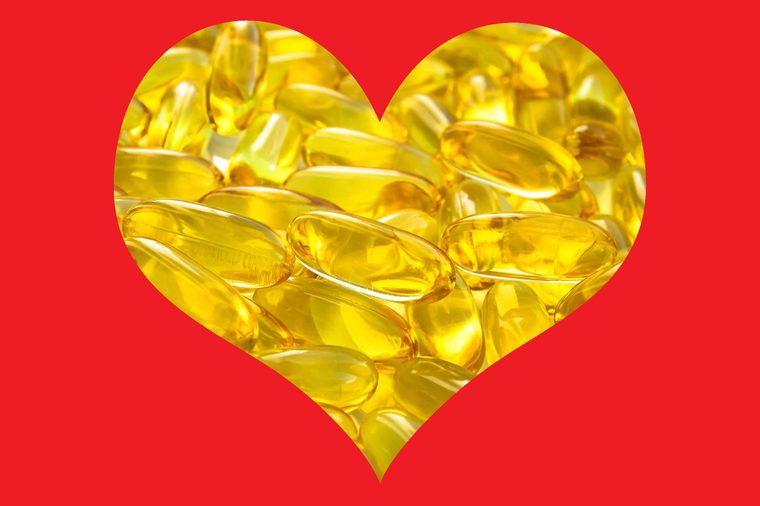
Omega-3s
Found naturally in fatty fish (think mackerel, tuna, salmon, and sardines), these healthy fats may reduce the inflammation tied to heart disease—among other benefits. (Omega-3s are amongst one of the recommended supplements for diabetes, too.) “These healthy fats are not made by the body so you have to get them from food,” says Suzanne Steinbaum, DO, an attending cardiologist and the director of Women’s Cardiovascular Prevention, Health, and Wellness at The Mount Sinai Hospital in New York City. She sometimes falls short of the American Heart Association’s (AHA) recommendations that call for eating fish twice a week, so she takes omega 3 supplements daily. If you don’t eat fish often, consider having your blood levels tested, she advises. These supplements were linked to a lower risk of dying after heart failure or a recent heart attack, according to 2017 research published in Circulation. Don’t like fish? Check out these omega-3 rich foods for people just like you.
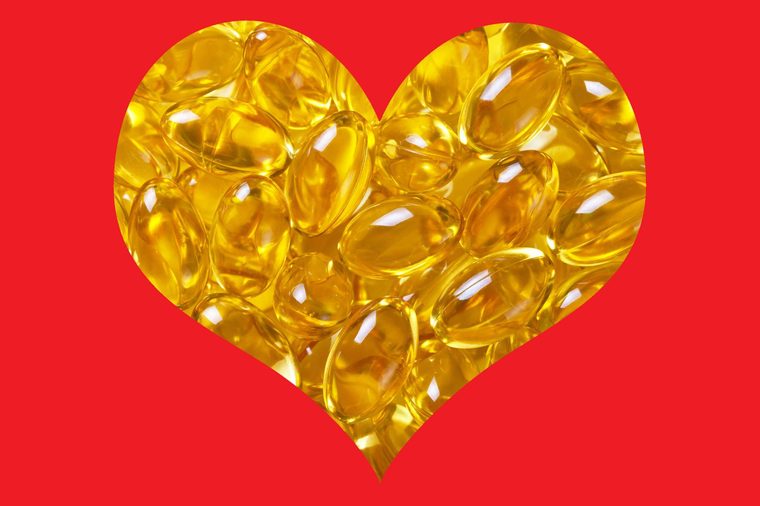
Vitamin D
Vitamin D is also known as the sunshine vitamin because the body produces it when skin is exposed to sunlight. The problem? Low levels of exposure to sunlight during darker months, and the sunscreen we wear to stave off skin cancer, may also prevent vitamin D production—and low levels of D are linked to a host of diseases and conditions including heart disease. “I wear tons of sunblock and a big wide-brimmed hat to protect my skin from cancer, so I take 2,000 international units of vitamin D a day to make sure my levels are where that need to be,” says Dr. Steinbaum. A simple blood test for vitamin D can tell you where you stand and whether you need supplements. This type of vitamin D may be twice as effective as the one you’re taking.
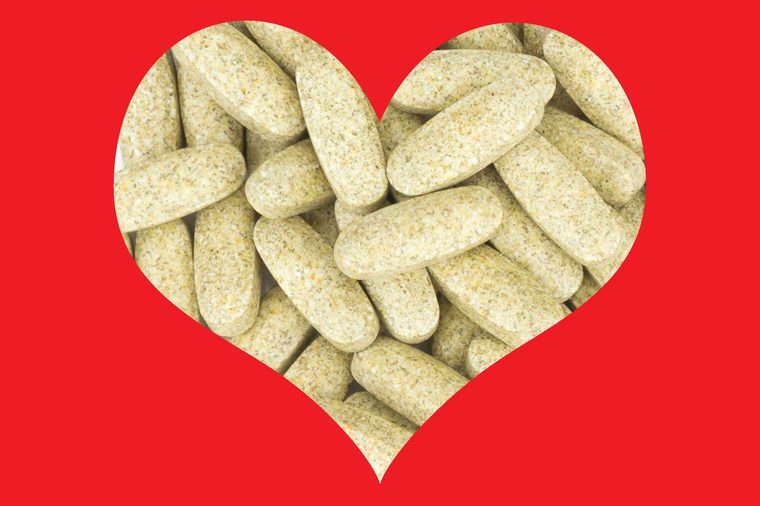
Garlic
Garlic does more than ward off vampires and cause bad breath. The flavorful bulb may lower blood cholesterol levels and blood pressure, according to research published in the Journal of Nutrition. “I started taking Kyolic Aged Garlic Extract a few years back when I received news that I had hypertension,” shares cardiologist Matthew Budoff, MD, a professor of Medicine at David Geffen School of Medicine at UCLA. He takes two garlic pills a day. “I’ve led multiple studies on the supplement that demonstrated coronary plaque regression and blood pressure lowering effects,” he says. “I would recommend it to anyone seeking help with hypertension or early heart disease.” Fatty plaques in the coronary arteries are a sign of heart disease.
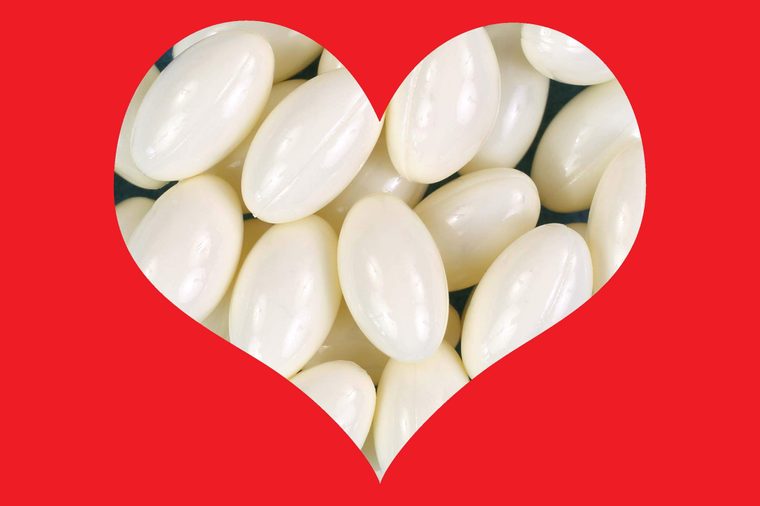
Biotin
New York City cardiologist Neica Goldberg, MD, heard about this B vitamin from a manicurist who suggested she take biotin to strengthen her nails. “I take it when I remember, and my nails are stronger for it,” says Dr. Goldberg, who prefers to get her nutrients from whole foods as opposed to supplements. Taking biotin supplements is one way to make your nails stronger, but there may be a downside when it comes to heart health. The FDA is warning that high doses of biotin in dietary supplements may interfere with hundreds of common lab tests—including the type that emergency room doctors use to diagnose a heart attack.
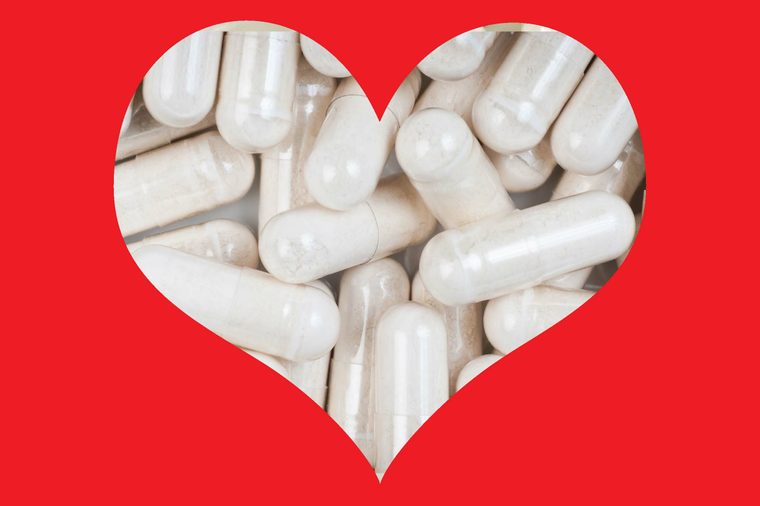
Glucosamine
Wear, tear, and advancing age take their toll on our joints and bones: This is why Perry Frankel, MD, a cardiologist in Lake Success, New York, takes glucosamine supplements daily. “It’s proven in studies to be good for joints, and in a head-to-head study it beat out certain pain relievers,” says Dr. Frankel. “It also helps form new cartilage.” These are among the reasons that it tops the list of arthritis home remedies even doctors strongly recommend.
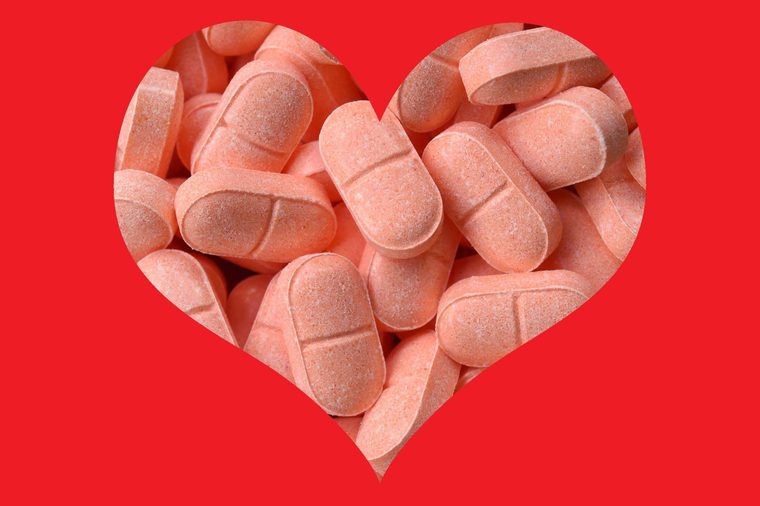
Vitamin C
This antioxidant is popular among doctors who take supplements: “Data show that it helps boost your immune system,” Dr. Frankel says, which is important for those who work in healthcare settings. Cardiovascular surgeon David A. Greuner, MD, FACS, of NYC Surgical Associates, agrees. “I take vitamin C because of the antioxidant effects, the overall effect on skin maintenance and health, and the fact that I never eat enough fruit,” he shares. Vitamin C deficiency has been linked to an increased risk of dying from heart disease, according to a review study in the International Journal of Molecular Sciences. What’s more, the study suggests that supplementing with C may boost heart health—especially in people with low blood levels of vitamin C. Here’s how to recognize vitamin C deficiency.
